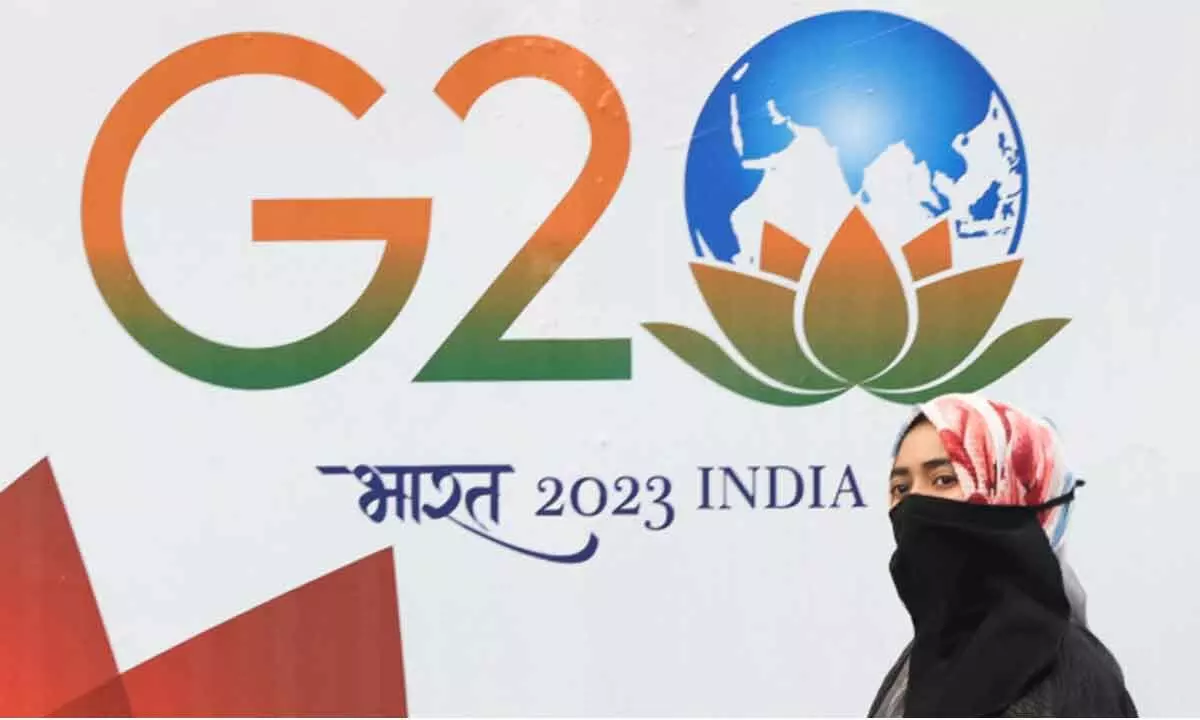Why Turkey, Saudi Arabia skipped G20 meeting in Kashmir?
On Kashmir issue, India cannot take for guarantee the support of the Islamic world, especially from Turkey and Saudi Arabia, as both nations are jockeying for their influence over Pakistan
image for illustrative purpose

Four Islamic states, Saudi Arabia, Turkey, Egypt, and Oman, skipped a G20 tourism working group meeting in Kashmir, organised by India under its presidency of the grouping for 2023. After the abrogation of Article 370 and withdrawal of the special status of Jammu & Kashmir in 2019, this gathering was the first international event of this scale to be held in the Indian state.
Though there has been no official statement from Riyadh nor Ankara, it is largely believed the two major Muslim nations avoided the event to keep Pakistan happy, which has been pleading for a boycott of the meeting using the Islamic brotherhood card. The Muslim Umma is part of Islamabad’s foreign policy toolkit that it has successfully used time and time to manipulate fellow Muslim nations on the Kashmir issue since its creation in 1947.
Though Pakistan’s anti-India stand is well-understood; However, Riyadh and Ankara, toeing Pakistan’s line, chose to distance themselves from the G20 meeting in Kashmir came as a surprise. This diplomatic manoeuvring reflects the complex nature of international and regional dynamics that India will have to live with and continue to navigate until the Kashmir issue is resolved.
After the Turkey-Syria earthquake in February, this year, India as the first responder, launched ‘Operations Dost’, a massive humanitarian relief work, to aid Turkish authorities in the search and rescue mission. New Delhi’s actions won a passionate response from the people of Turkey. At that time, it looked as though India had pole vaulted its relationship with Ankara by miles in one sweep.
The investment between Saudi Arabia and India has already crossed the $5 billion mark as both countries are working towards creating an investment bridge to accelerate investments in each other’s markets. The ‘strategic partnership’ between the two nations spread across several fields, including energy, security, defence production, civil aviation, medical products, etc. It was expected that Saudi Kingdom would help pivot the Islamic worldview on the Kashmir issue toward India.
So, the question is - what explains Turkey and Saudi Arabia’s action to skip the G20 meeting in Kashmir? The answer lies in the geopolitics clash between Turkish President Recep Tayyip Erdogan and Mohammed bin Salman Al Saud colloquially known by his initials MBS, Crown Prince and Prime Minister of Saudi Arabia.
The relationship between MBS and Erdogan has been strained in recent years, with both leaders holding differing views on regional issues and following their own geopolitical agendas. Erdogan has been known for his aspirations to play a prominent role in the Muslim world and has positioned himself as a leader who speaks on behalf of Muslims globally. He has advocated for issues affecting Muslims, such as the Palestinian cause and the situation in Kashmir, and he has sought to increase Turkey’s influence in the Muslim world through various means.
While Erdogan has not explicitly stated that he wants to be the head of the Muslim Ummah (global Muslim community), his actions and rhetoric have demonstrated his ambition to become a significant leader and voice for Muslims.
Thus, MBS may view Erdogan’s regional ambitions and his attempts to position himself as a leader in the Muslim world as a challenge to Saudi Arabia’s traditional influence and leadership in the Islamic world.
As the custodian of the two holiest sites in Islam (Mecca and Medina), Saudi Arabia wields its influence in the Muslim world. In contrast, Erdogan has sought to expand his influence in regional affairs, particularly issues affecting the Muslim community. This is where Pakistan becomes important to both contesting nations.
Pakistan is the world’s fifth-most populous country, with a population of over 249 million people, and the world’s second-largest Muslim population perfectly fits into Erdogan’s ambitions and goals. Moreover, both countries have traditionally enjoyed close and cordial relations for over half a century.
Pakistan and Saudi Arabia have historically maintained a close and multifaceted relationship. Riyadh has provided financial support to Pakistan in various forms, including loans, grants, and oil supply on deferred payment terms. During the ongoing economic meltdown, Saudi Arabia rescued Islamabad by approving funding of $2 billion in deposits to meet IMF’s bailout terms. While Pakistan has provided military training and assistance to Riyadh, Pakistani military personnel have been deployed to Saudi Arabia under bilateral defence agreements.
Similarly, Turkey has been a political and economic partner to Islamabad while Pakistan has embraced Turkish cultural products with comfort, thus, deepening their relationship on multilevel levels. Therefore, to expect a one-off good samaritan act by India will change the course of their relationship, and Istanbul will give up on Islamabad; it is too much for the asking. But, yes, at best, New Delhi’s quick action would allow India to get a fresh start in its relationship with Ankara.
On the Kashmir issue, India cannot take for guarantee the support of the Islamic world, especially from Turkey and Saudi Arabia, as both nations are jockeying for their influence over Pakistan.
(The author is Founder of
My Startup TV)

